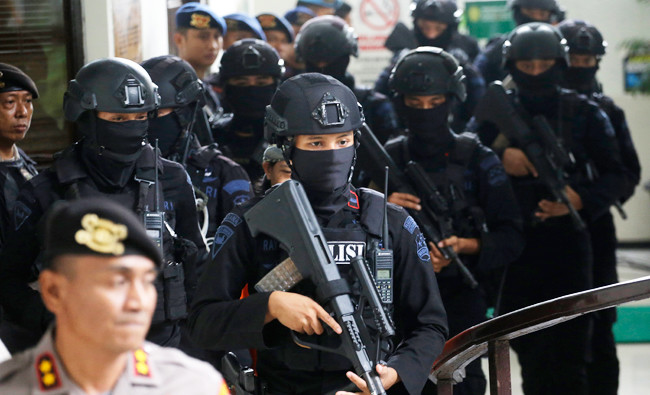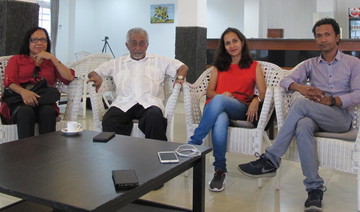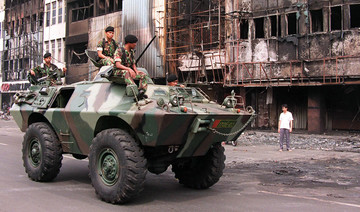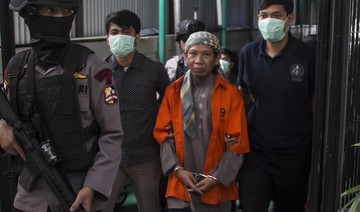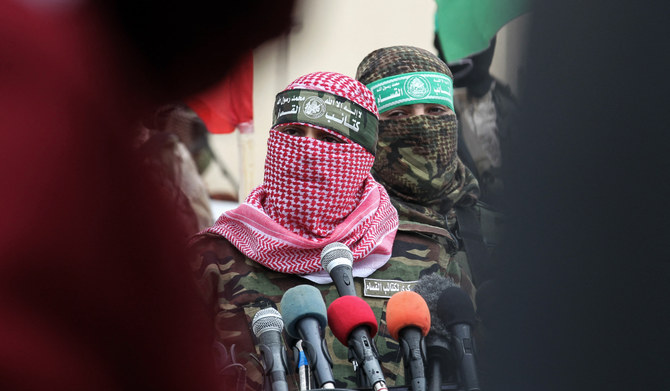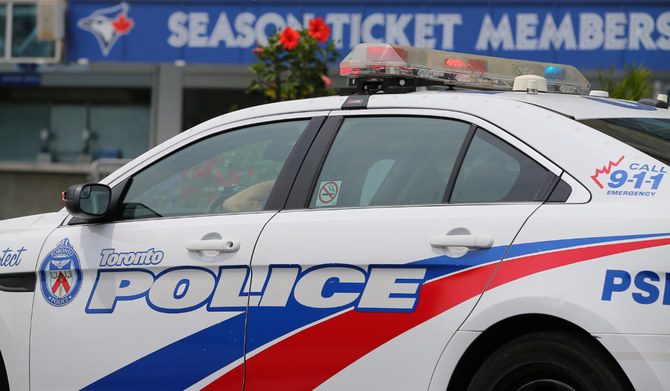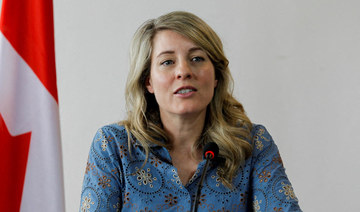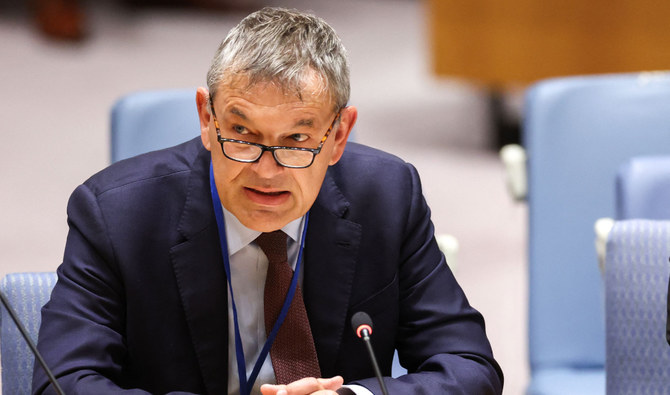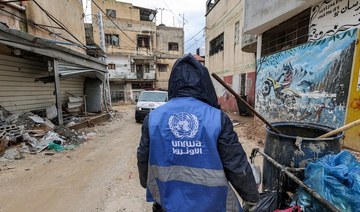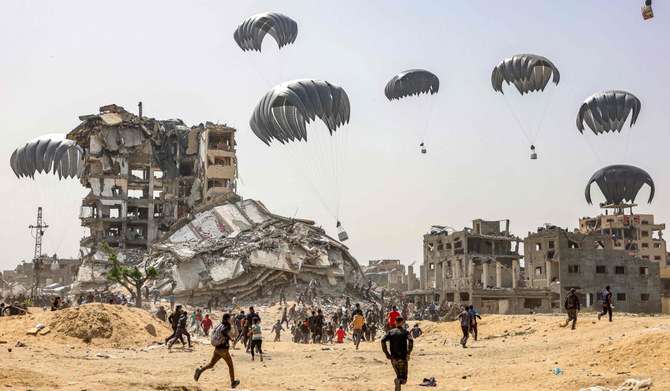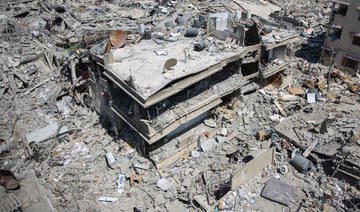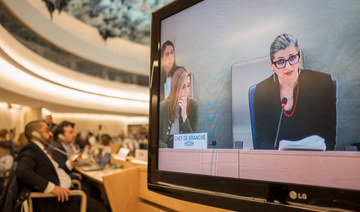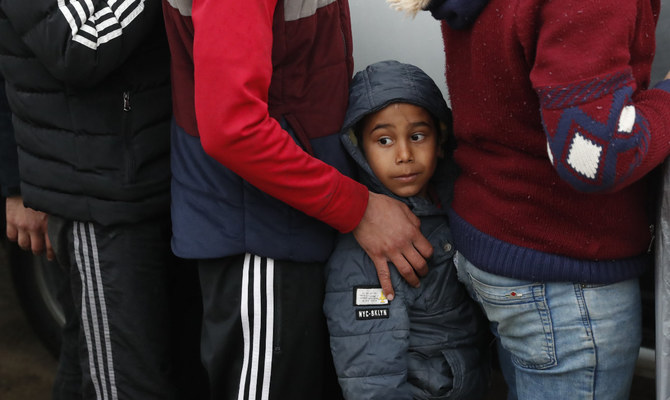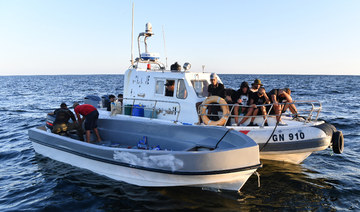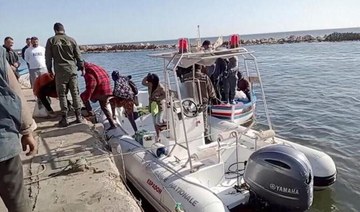NEW YORK CITY: The head of the UN agency that helps to provide aid and development for Palestinian refugees told Arab News on Tuesday that no effort will be spared to protect it from “ferocious attacks” by its critics.
And as protests related to the war in Gaza continue to cause friction around the world, including growing rows on US college campuses, Philippe Lazzarini, the commissioner general of the UN Relief and Works Agency for Palestine Refugees, said many of the supporters of each side in the conflict are unable to feel any empathy for those on the other, and so they demonize them.
“The peace process, per se, is not enough,” he added. “What we need is healing.”
Lazzarini said he has been struck by the fact that “empathy in this part of the world is most of the time unilateral. It’s either empathy only for the Palestinians, with no understanding where the Israelis are coming and the trauma that Oct. 7 has created in the country, or empathy only for Israelis, with absolutely no empathy for the Palestinians.”
He said his main message to US students is the need to show “compassion and empathy” for both peoples, “because ultimately, we expect that Israelis and Palestinians will live, and deserve to live, in peace and security.”
UNRWA has never been under attack to the extent it has been in recent months, Lazzarini said.
“It has never been in a situation where at same time 18 countries are reviewing or freezing their contributions,” he added. “It has never been the target of an open campaign for the total dismantlement of its activities in Gaza, and possibly beyond. What we are going through is quite unique in its ferocity.”
Agency staff and the communities they serve are “deeply anxious” about the possibility it might be weakened or even dismantled, he said, pointing to an opinion poll in which between 80 and 90 percent of Palestinians in Gaza and the West Bank expressed such fears.
“We will leave no stone unturned and we will bring the conversation where it needs to be to avoid the agency’s dismantlement,” said Lazzarini.
He added that this has been the mindset since the crisis the agency is facing was brought to the attention of the UN General Assembly in March, and was on display again last week during a meeting of the Security Council requested by Jordan in response to long-running attempts by Israeli authorities to force the agency out of Gaza.
“Now we are looking at the next, best avenue to shield the organization from these kind of attacks,” he added.
The agency, which provides aid and other services to millions of Palestinian refugees in Gaza and throughout the region, was thrown into crisis in January when Israel alleged that 12 UNRWA workers took part in the Oct. 7 attacks by Hamas against Israel.
In a report published on Monday, an independent team of investigators led by former French foreign minister Catherine Colonna, reported that Israeli authorities have yet to provide any evidence to back up their allegations, and had not previously expressed concerns about any individuals named on the lists of UNRWA staff they had been receiving since 2011.
In the immediate aftermath of the Israeli allegations, the US, the biggest single funder of the agency, and several other major donors immediately put their funding for the organization on hold. In all, 18 UN member states suspended or paused donations, while others imposed conditions, placing the very future of the agency in doubt. Many later resumed their donations.
Speaking to reporters at the end of an official visit to New York, Lazzarini once again said that he believes the attacks on UNRWA were not truly motivated by concerns about the neutrality of its staff, but rather the primary objective was to strip Palestinians of their refugee status.
Israel has long accused the agency of deliberately perpetuating the refugee status of millions of Palestinians, an allegation Lazzarini describes as “nonsense.”
“Basically, it is as if you would say that the humanitarian response in a conflict zone is perpetuating the conflict,” he said.
“The reality is that it is perpetuated because of the absence of a political solution. UNRWA was geared to be a temporary organization, hoping to end its activities the day there is a lasting and fair political solution. And here we are, 75 years later; it’s certainly not UNRWA perpetuating the status (but) our collective inability to promote a solution.
“If we have a genuine desire for a two-state solution, and we revitalize the implementation of such a solution, UNRWA’s temporary nature can be reinstated and hence UNRWA can pave the way for the future (Palestinian) state to provide the services the agency is providing.”
Since the beginning of the war in Gaza in October, 180 agency staff have been killed, more than 160 UN premises have been damaged or destroyed, and at least 400 people have been killed while seeking shelter under the flag of the UN.
Premises UNRWA staff were forced to abandon reportedly have been taken over and used for military purposes by the Israeli army, Hamas or other armed groups. Several agency workers have been arrested or mistreated, some have been tortured.
Lazzarini urged the Security Council to order an independent investigation into such incidents and for those responsible for the “blatant disregard” they have displayed toward UN premises, staff and operations in the Gaza Strip to be held accountable, so as to avoid setting “a new low standard in future conflict situations.”
The attacks on UNRWA and its work continue even as fears grow that warming weather will bring with it disease and other health risks. This is especially a concern in southern Gaza, which has become the last refuge for more than a million people forced by fighting to flee other parts of the territory, and where Lazzarini said “garbage collection has become a priority for our colleagues to prevent disease outbreak,” amid the “key anxiety” among people of a threatened, “possibly looming, upcoming military offensive” by Israel, “which seems to be back on the table.”
The report submitted by Colonna’s team after its investigation, which was ordered by the UN to assess whether UNRWA was doing all it could to ensure the neutrality of more than 32,000 workers, includes more than 50 recommendations, including improvements to internal oversight, enhanced in-person training, and additional support from donor nations.
Lazzarini welcomed the report and said he is committed to implementing its recommendations. It is clear from its findings, he said, that “the agency, in reality, has already a number of systems to deal with neutrality issues, far ahead of the average UN agencies or even (nongovernmental organizations), and because of the complexity of the environment we are operating in we need to be extremely vigilant, and we can always do more.”
He expressed his hope that as a result of the report and the measures that will be put in place, “the last group of donors will get the necessary confidence to come back” to the agency.
However, he noted that US will not provide any more donations until at least March 2025 because of a lack of political support for UNRWA in Washington, and added that “my task now is to try to bridge the gap” in financing that currently exists “and see that funding covered until the end of June.”



